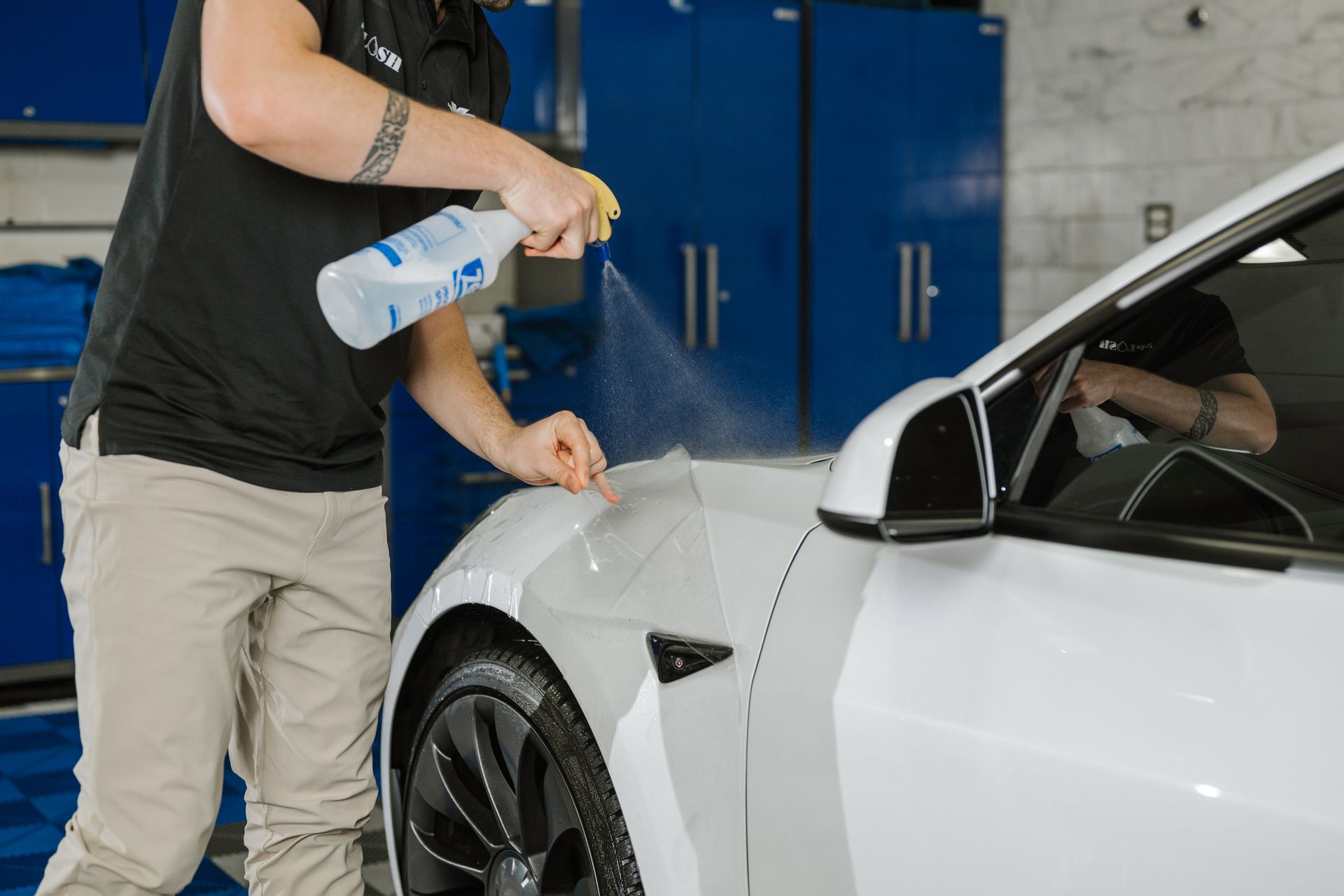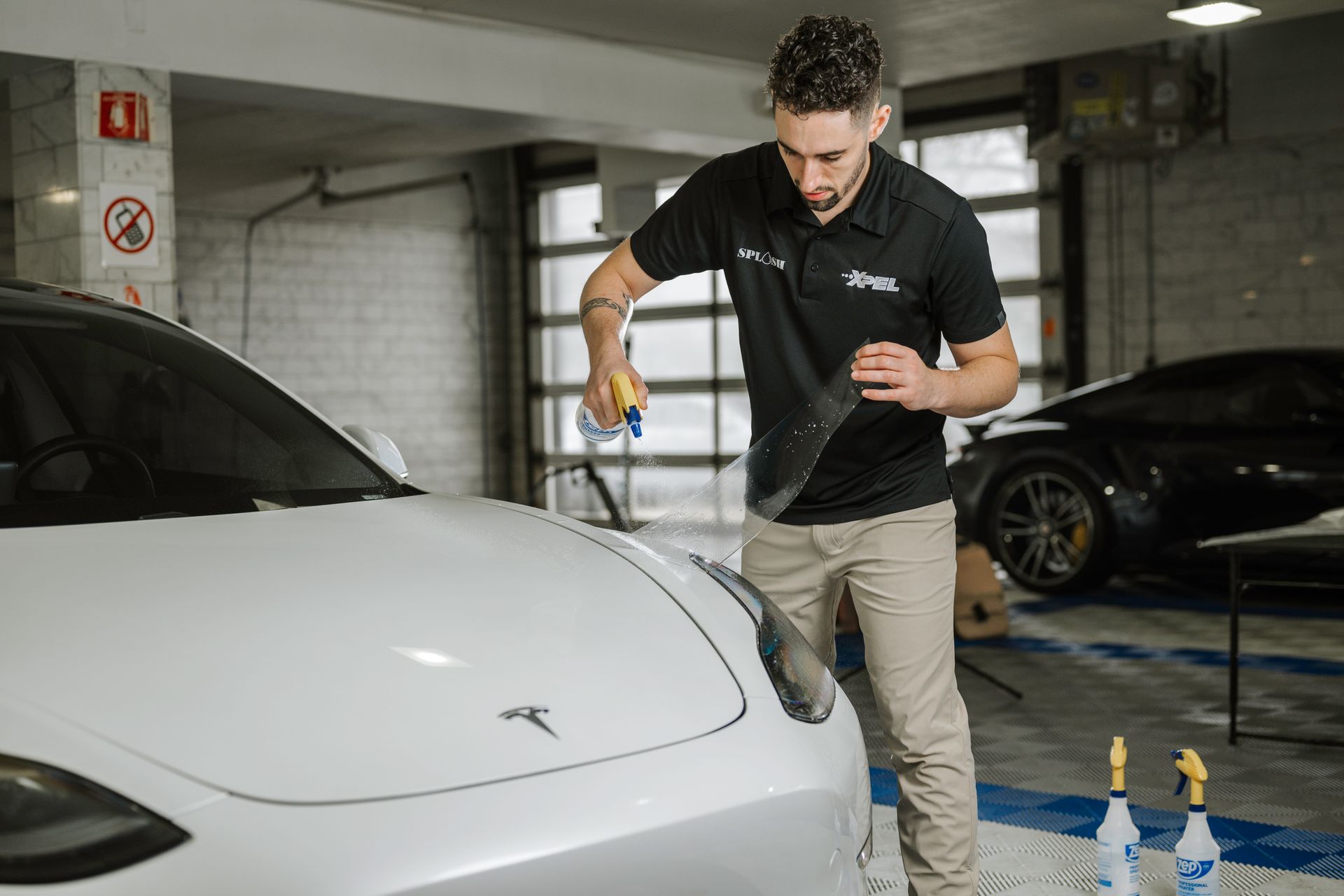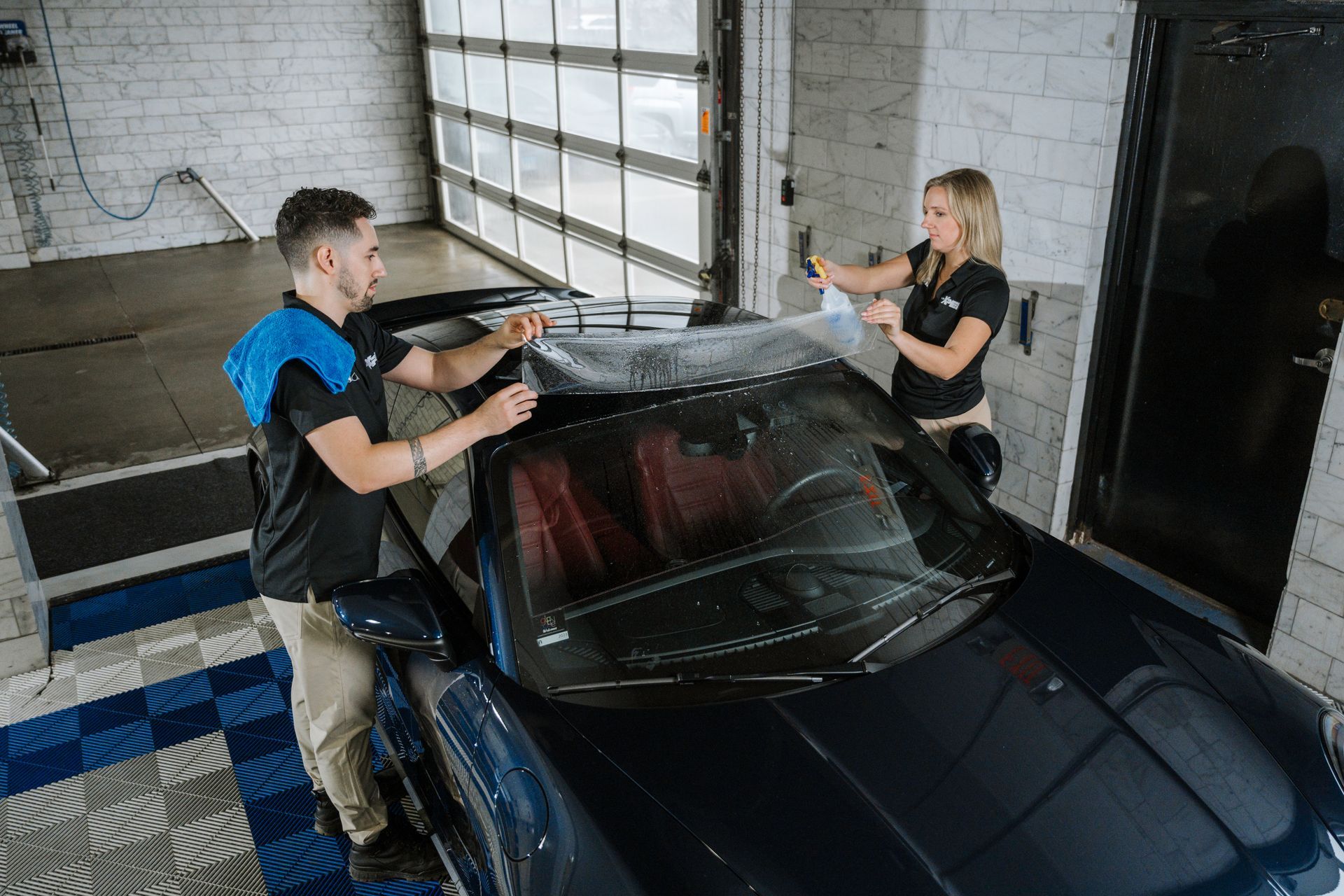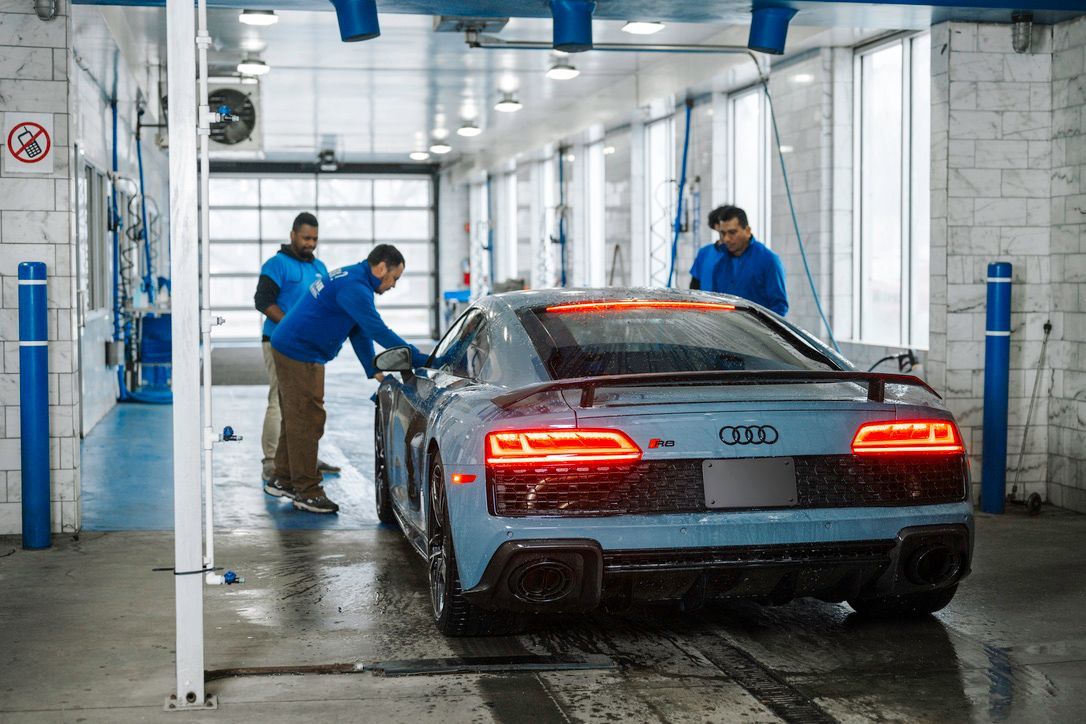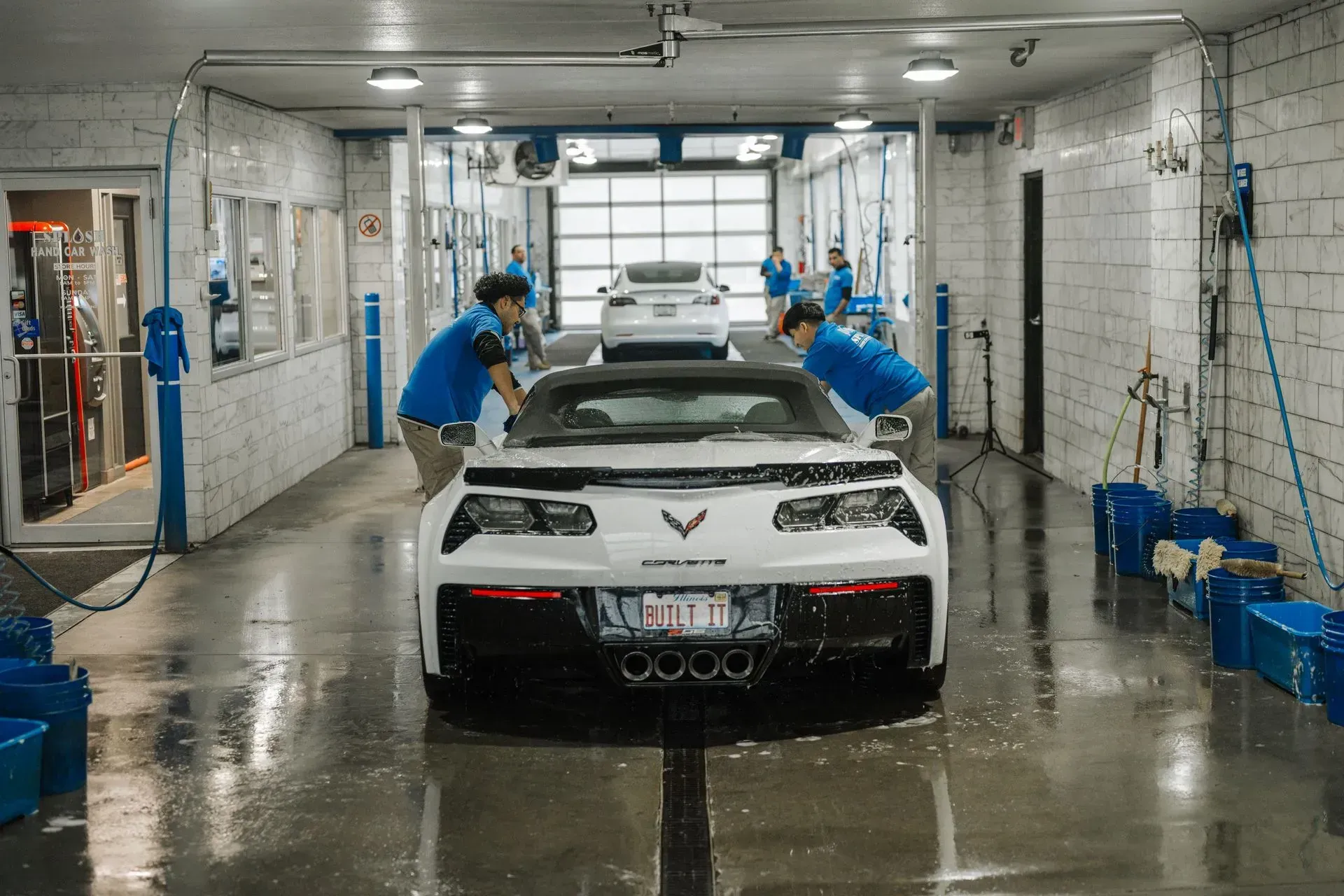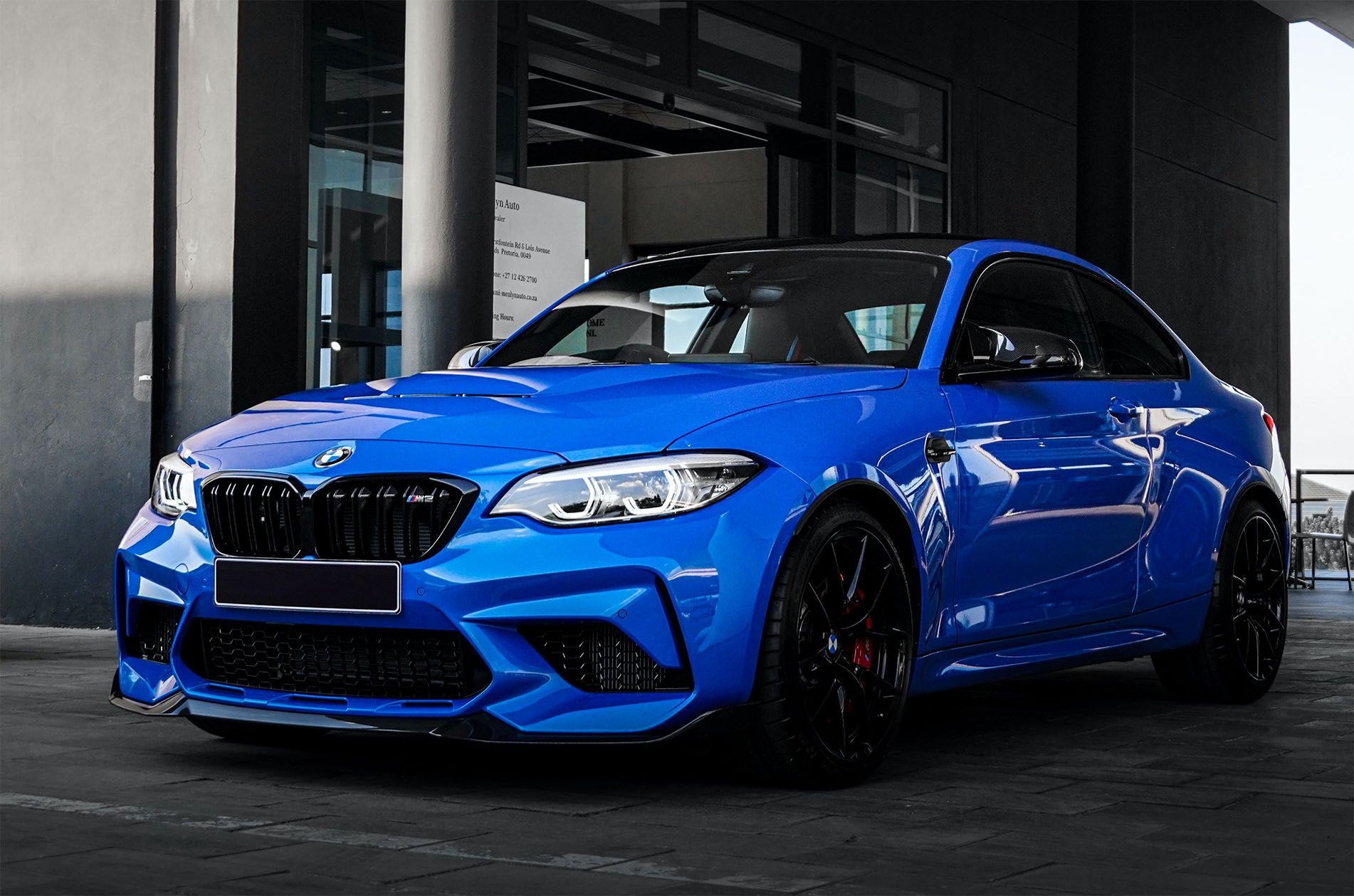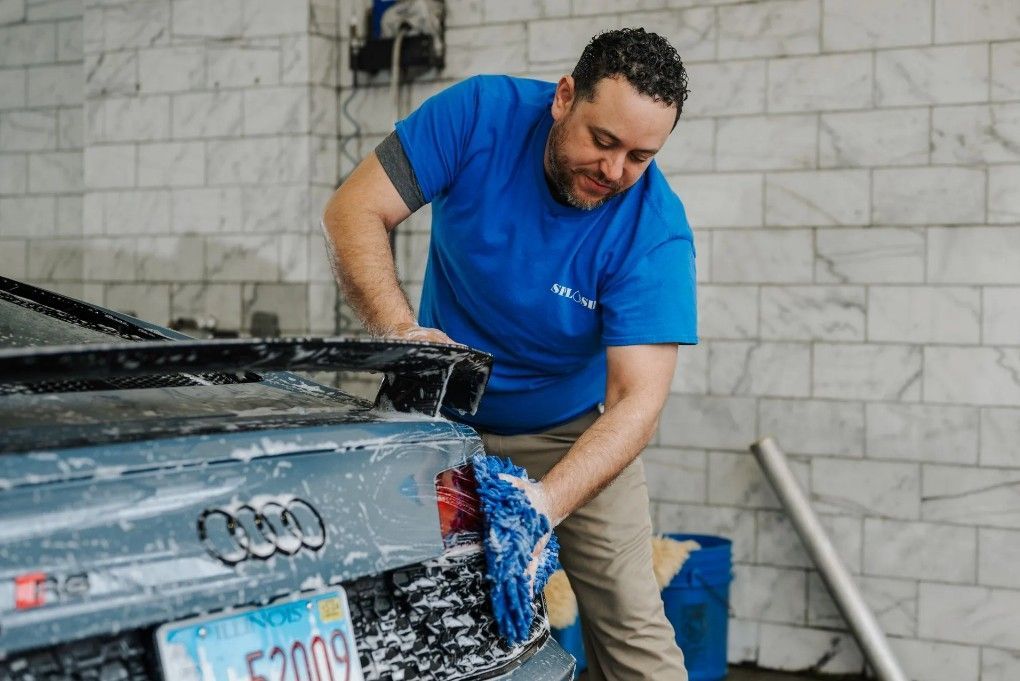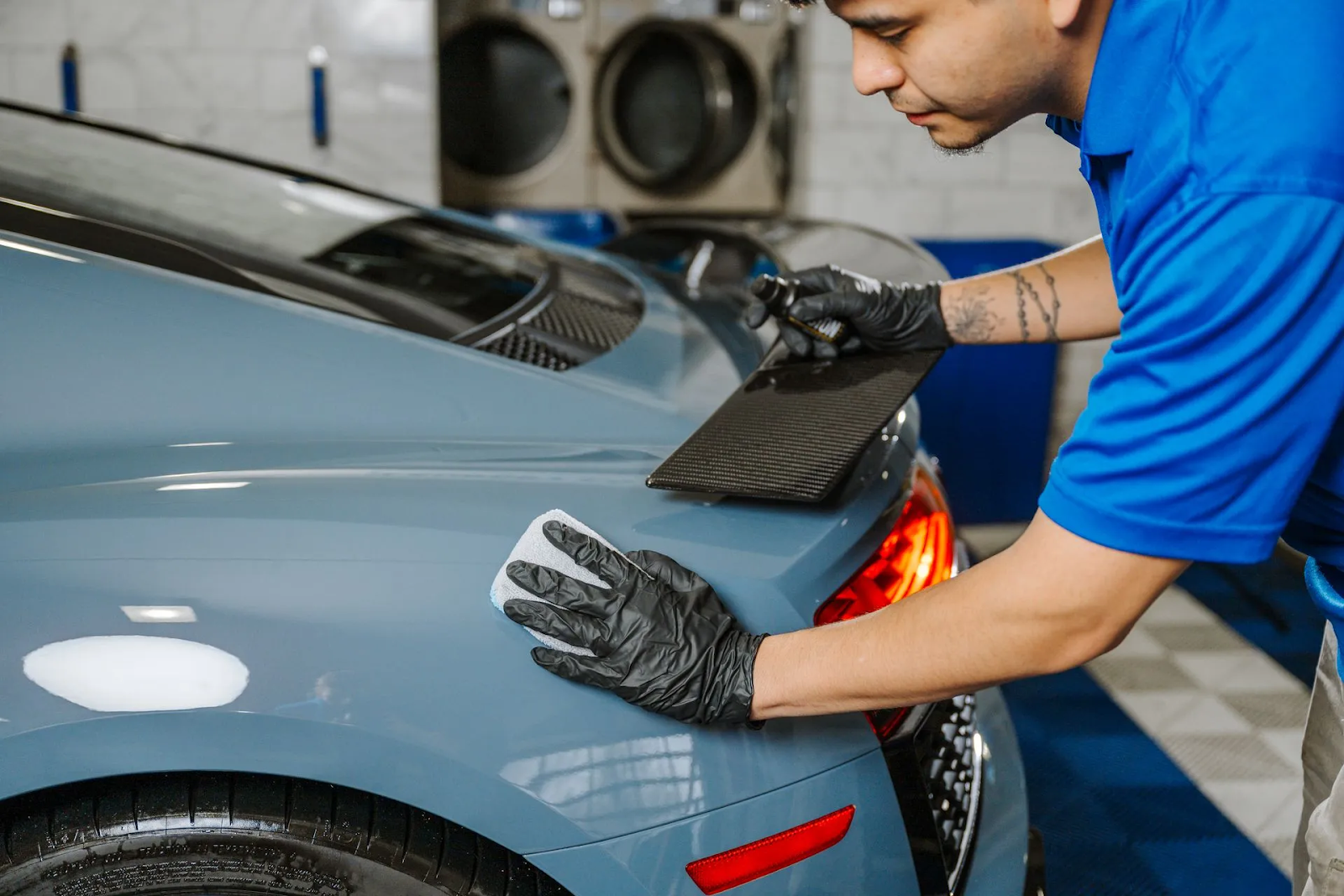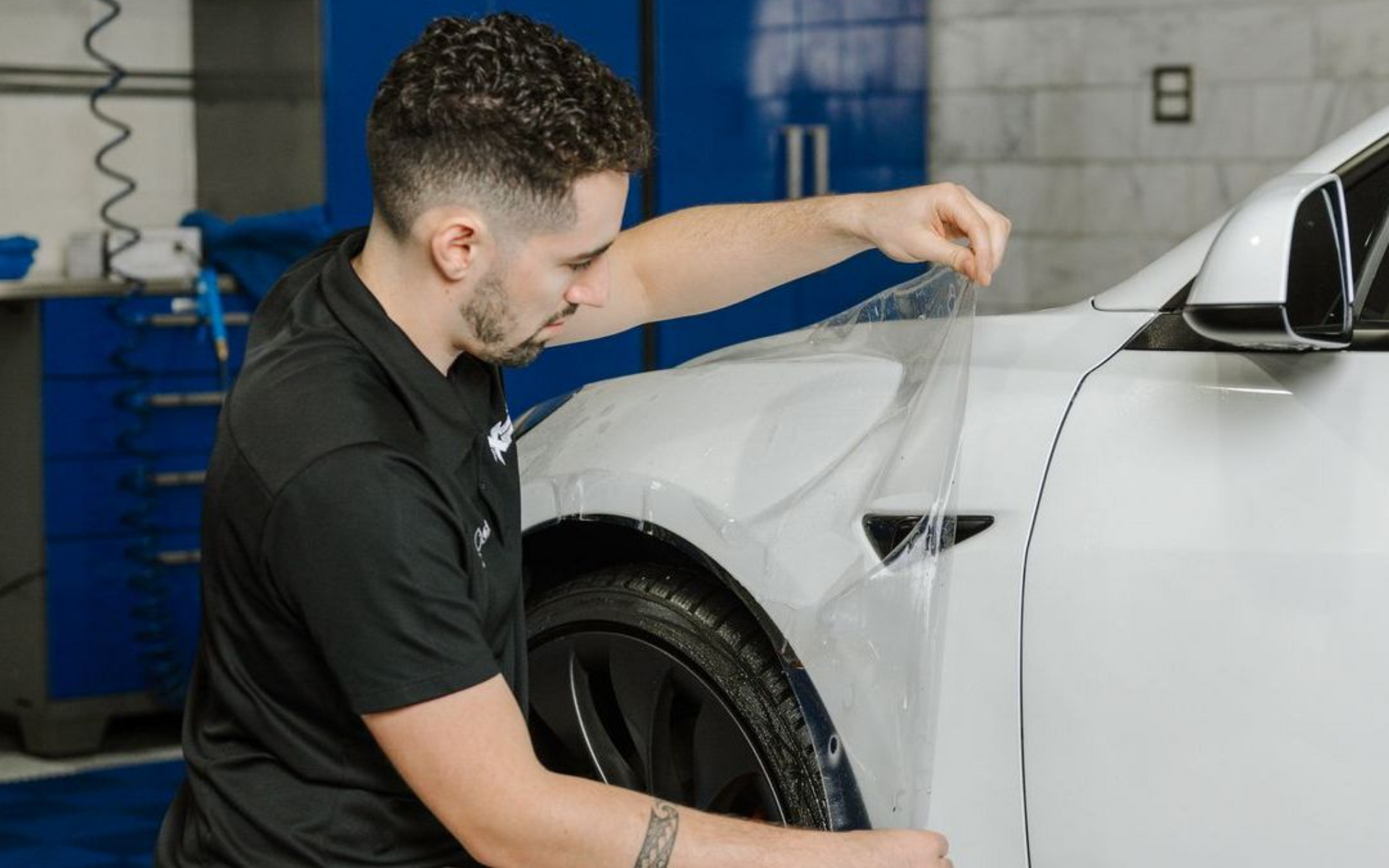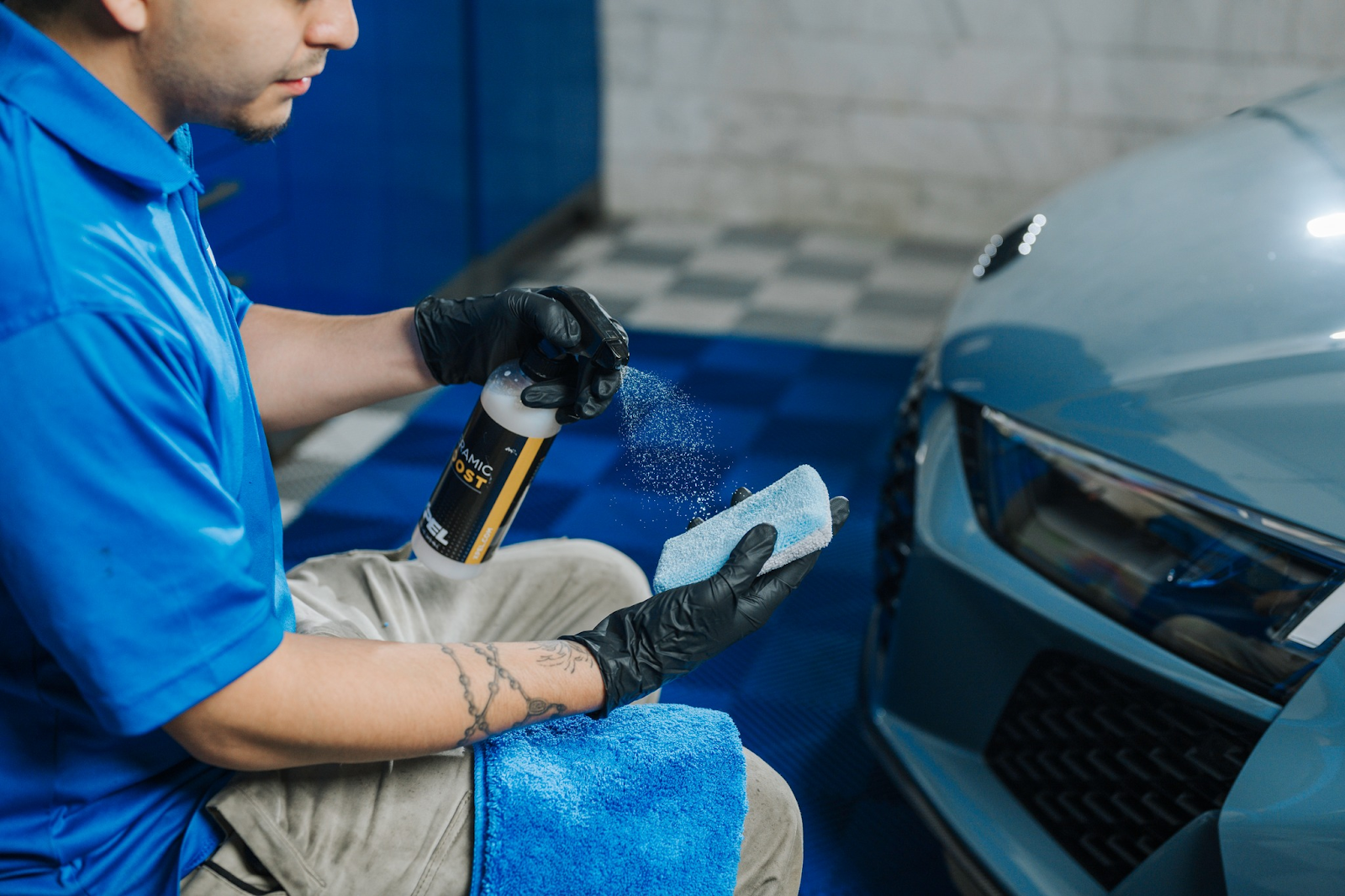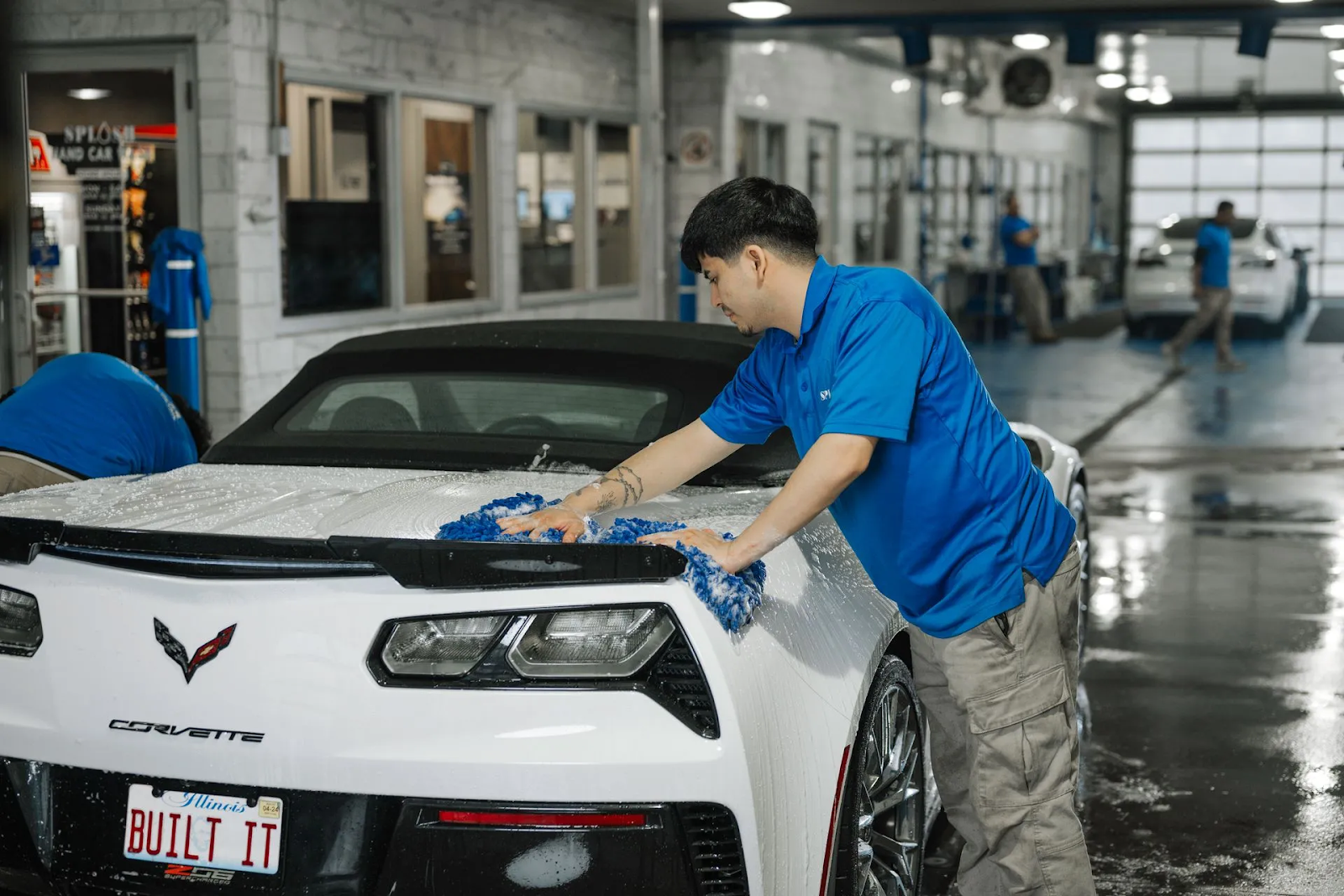For residents of Northbrook, IL, keeping your vehicle looking fresh and well-maintained all year long is no small feat. With the changing seasons and unpredictable weather conditions, your car is constantly exposed to a range of factors that can damage its paint. From salt and grime during the winter months to UV rays and road debris in the summer, the daily wear and tear can leave your vehicle vulnerable to unsightly chips, scratches, and fading.
If you’re a Northbrook driver who values maintaining your car’s aesthetic appeal and resale value, you’ve likely considered or already installed paint protection film (PPF). This transparent, durable layer shields your vehicle’s surface from environmental damage while preserving the factory finish. Whether you’ve recently had PPF applied or are still exploring your options, one common question often arises: What is the paint protection film's lifespan? The durability of PPF is one of the most important factors in making the decision to invest in this type of protection. The paint protection film's lifespan depends on various factors, and understanding these can help you make the most of your investment.
The longevity of paint protection film doesn’t just rely on the product itself—it’s also influenced by installation quality, maintenance practices, and exposure to different driving conditions. Drivers in Northbrook, with its mix of urban and suburban roads, can face unique challenges when it comes to protecting their vehicle’s finish. Knowing how to extend the paint protection film lifespan and how to spot when it’s time for a replacement will ensure your car’s surface stays in top condition for years.
What is Paint Protection Film?
Paint Protection Film (PPF), also known as clear bra, is a high-performance, transparent layer of thermoplastic urethane that is carefully applied to a vehicle’s painted surfaces. Originally developed for military applications to protect helicopter blades from damage, PPF has evolved into one of the most advanced technologies available for automotive paint preservation. Today, it serves as a critical solution for vehicle owners looking to maintain the pristine appearance of their cars while safeguarding their paint against the harsh elements.
The primary purpose of paint protection film is to offer durable protection from a variety of environmental hazards and contaminants, including:
- Road Debris: Gravel, small rocks, and other debris kicked up from the road can easily cause chips and scratches on your vehicle's paint. PPF creates a strong barrier that absorbs these impacts, preserving your car's finish.
- Salt and Deicing Chemicals: During harsh Illinois winters, road salts and deicing chemicals can damage your car’s paint. PPF provides a protective shield against these corrosive substances, which can eat away at your vehicle’s finish over time.
- Insects, Bird Droppings, and Tree Sap: These common contaminants can stain or etch your vehicle’s paint if left untreated. With PPF, you don’t have to worry about harmful residue ruining your car’s surface.
- UV Rays: Prolonged exposure to the sun’s UV rays can cause paint to oxidize, fade, and lose its shine. Paint protection film helps protect your vehicle from UV-induced damage, keeping your car’s color vibrant for longer.
- Minor Scratches and Swirl Marks: Even everyday wear and tear can result in fine scratches or swirl marks. Many high-quality PPFs have self-healing properties, meaning small imperfections disappear on their own when exposed to heat or sunlight.
High-Quality Brands Offering Exceptional Protection
Leading PPF brands such as XPEL, 3M, and SunTek have pioneered the development of self-healing, transparent, and highly durable films. These premium films are designed not only to protect your vehicle but also to enhance its appearance by maintaining a glossy, sleek finish that lasts for years when properly maintained.
With the right care, paint protection film can provide long-term durability, protecting your vehicle’s paint from the harsh conditions and keeping it looking newer for longer.
Average Paint Protection Film Lifespan
The paint protection film's lifespan can vary depending on several important factors, but in general, most high-quality films can last anywhere from five to ten years. Some manufacturers even offer warranties up to ten years, but that doesn’t necessarily guarantee that your PPF will remain in perfect condition without the right care.
Let’s explore what affects the longevity of paint protection film, especially in a location like Northbrook, where your vehicle is exposed to both harsh winters and hot summers.
Factors That Influence the Lifespan of PPF
1. Quality of the Paint Protection Film
The most significant factor influencing how long your PPF will last is the quality of the film itself. Premium-grade films from trusted brands are engineered for long-term performance and come with features like self-healing capabilities, hydrophobic coatings, UV resistance, and clarity retention.
On the other hand, low-cost or generic brands may degrade much sooner—peeling, yellowing, or cracking within just a few years. Choosing a reputable product is the foundation for ensuring your investment in PPF pays off over time.
2. Skill of the Installer
Even the best PPF won’t perform as expected if it’s applied improperly. Professional installation is crucial to ensuring that the film adheres evenly, is trimmed correctly, and doesn't trap air bubbles or contaminants.
An experienced installer in Northbrook will understand how to prep the surface thoroughly, align the film to match the vehicle’s curves, and seal the edges to prevent lifting. Mistakes during installation often lead to premature film failure, regardless of how durable the material is.
3. Exposure to Weather and Road Conditions
In Northbrook, IL, your car will encounter a full range of Midwest weather conditions—from icy winter roads covered in salt to intense summer sunlight. These seasonal extremes can take a toll on your paint and your PPF.
Winter salt, in particular, can degrade the edges of the film if not properly cleaned off. Sun exposure can also age the film more rapidly if it’s parked outdoors without any shade. Additionally, frequent highway driving may expose the film to higher levels of debris and impact.
4. Vehicle Usage
The more frequently and aggressively your vehicle is driven, the more wear and tear the vehicle will experience. A daily commuter vehicle or sports car driven at high speeds will see more impact from the elements compared to a vehicle that is garage-kept or only used occasionally.
5. Maintenance Habits
Proper maintenance is a critical but often overlooked factor in extending paint protection film's lifespan. A neglected PPF surface can trap dirt, oils, and other contaminants that slowly wear it down. On the other hand, regular cleaning and occasional professional detailing can help preserve the film’s clarity and strength.
How to Extend the Lifespan of Your Paint Protection Film
While PPF is designed to be long-lasting, its true durability depends heavily on how it’s treated after installation. Here are some effective strategies to help you maximize your PPF’s lifespan:
1. Wash Your Vehicle Regularly
Regular washing helps prevent contaminants from building up on the film's surface. Use a pH-balanced automotive shampoo and a microfiber wash mitt to avoid scratching the film. Avoid using abrasive sponges or brushes.
In Northbrook, it’s especially important to wash your car frequently during the winter months to remove road salt and prevent corrosion along the edges of the film.
2. Avoid Automated Car Washes
Automated tunnel car washes can be too aggressive on PPF, especially if they use spinning brushes. These brushes can catch the edges of the film and cause it to peel prematurely. Instead, opt for a touchless wash or a professional hand wash service like the one offered at Splash Hand Car Wash and Detail.
3. Apply a Ceramic Coating on Top of the PPF
One way to enhance your PPF’s performance is by applying a ceramic coating over the film. This extra layer improves hydrophobic properties, makes cleaning easier, and adds additional UV protection.
Ceramic coatings can also help prevent staining and discoloration, keeping your film looking clearer for longer. It’s an excellent way to get the best of both worlds—physical protection from the PPF and chemical resistance from the ceramic coating.
4. Park in Covered or Shaded Areas
UV rays are one of the top enemies of any vehicle surface, including PPF. To prevent premature yellowing or fading, try to park your vehicle in a garage, carport, or shaded area whenever possible.
This not only helps preserve your PPF but also protects your interior from sun damage.
5. Schedule Annual Inspections
Even if your paint protection film looks fine, having it professionally inspected once a year can catch early signs of wear. Small imperfections, such as lifting edges or small punctures, can be repaired before they turn into larger problems.
A professional detailing shop in Northbrook, like Splash Hand Car Wash and Detail, can provide these inspections and offer reapplication services when needed.
Signs That It’s Time to Replace or Reapply Your PPF
No matter how well you maintain your film, it will eventually need to be replaced. Here are the most common signs that your PPF is nearing the end of its lifespan:
Yellowing or Discoloration
If your film starts to appear yellow or cloudy, especially on lighter-colored vehicles, this can indicate UV damage or chemical buildup. Once discoloration sets in, the film will need to be removed and replaced.
Peeling or Lifting Edges
Edges that begin to lift are often the result of improper cleaning techniques or aging adhesive. Once exposed, the film becomes susceptible to dirt and moisture, which can accelerate deterioration.
Cracks, Bubbling, or Blistering
These imperfections not only affect the film’s appearance but also its ability to protect your vehicle. Cracked or bubbled areas indicate that the self-healing layer has degraded beyond repair.
Lack of Gloss or Clarity
If your PPF looks dull or fails to shine even after washing and waxing, it may be too worn to function properly. Over time, the topcoat that provides gloss and resistance to contaminants can wear away.
Why Professional Installation Matters in Northbrook, IL
In a market saturated with DIY kits and budget-friendly installers, it might be tempting to cut costs when it comes to protecting your vehicle’s paint with paint protection film (PPF). However, while DIY options may seem appealing, professional PPF installation by a certified technician offers substantial advantages that can significantly impact the durability and effectiveness of your protection.
Here’s why choosing a professional installer is crucial for your vehicle’s protection:
- Correct Surface Preparation and Cleaning: The foundation of any successful
PPF installation begins with proper surface preparation. A professional installer ensures that your vehicle's paint is thoroughly cleaned, free of contaminants, and prepped to ensure optimal adhesion of the film, preventing imperfections like air bubbles or lifting edges.
- Precision-Cut Film for Perfect Fitment: Professional installers use advanced technology and precise cutting tools to ensure that the paint protection film fits perfectly on your vehicle’s surfaces, including difficult areas like the hood, fenders, and side mirrors. This level of precision ensures that the film doesn’t wrinkle or peel over time.
- Expert Handling of Complex Curves and Edges: The skill of a professional technician is essential for handling complex curves, sharp edges, and intricate details. Proper installation ensures that the PPF conforms seamlessly to your vehicle’s unique contours, providing full coverage and maintaining a clean, flawless finish.
- Use of Quality Film Backed by Manufacturer Warranties: Certified installers like those at Splash Hand Car Wash and Detail use only premium PPF products, which come with robust manufacturer warranties. This means your investment is protected, and the film’s performance is guaranteed for years to come, offering long-lasting protection against road debris and environmental elements.
At Splash Hand Car Wash and Detail, we are committed to delivering exceptional quality in every paint protection film (PPF) installation. We understand that your vehicle is a significant investment, and we prioritize accuracy, aesthetics, and longevity to ensure it remains in top condition for years to come. Our team of certified technicians brings years of expertise to every job, using only the finest PPF materials available on the market.
We follow industry-leading installation techniques to guarantee a seamless fit and flawless finish, ensuring the film adheres smoothly to your vehicle’s surface, whether it’s a flat panel or a complex curve. Every edge, corner, and detail is meticulously handled to prevent any lifting, bubbling, or peeling down the line. Our approach doesn’t just focus on protection; we enhance the overall appearance of your vehicle, ensuring it looks as good as it is protected.
We believe in quality that lasts. That's why we use top-tier PPF brands that come with manufacturer-backed warranties, providing you with peace of mind knowing that your vehicle is safeguarded from road debris, rock chips, and environmental damage for years to come. At Splash Hand Car Wash and Detail, we don’t just protect your car—we preserve its beauty and value, ensuring it maintains its showroom shine long after installation.
Frequently Asked Questions About Paint Protection Film Lifespan
Can I wax my car with PPF installed?
Yes, but you must use wax products that are compatible with PPF. Avoid any products containing petroleum distillates or harsh solvents. For best results, a ceramic coating is a safer and more effective alternative to wax.
Will paint protection film damage my car’s paint?
No. When installed and removed properly, high-quality PPF will not damage factory paint. In fact, it acts as a sacrificial layer that preserves your original finish.
Can I install PPF only on high-impact areas?
Yes. Many customers choose to install PPF on the front bumper, hood, side mirrors, and door edges—areas most susceptible to damage. However, for maximum protection and uniform wear, full-body coverage is an option worth considering.
Paint protection film is one of the most effective ways to safeguard your vehicle's paint from damage, especially in a place like Northbrook, IL, where your car faces a wide variety of environmental stressors throughout the year. With a potential lifespan of five to ten years, PPF is a long-term investment that pays off in preserved vehicle value and a flawless finish.
However, the actual durability of your PPF depends on multiple factors, including the quality of the film, the skill of the installer, environmental conditions, and your ongoing maintenance efforts. With professional installation and proper care, you can maximize the life of your paint protection film and keep your vehicle looking showroom-ready for years to come.
Protect Your Vehicle Today with Expert PPF Installation in Northbrook, IL
When it comes to premium paint protection film (PPF) installation, trust the experts at Splash Hand Car Wash and Detail. Our certified technicians deliver top-quality PPF solutions, ensuring your vehicle stays protected against road debris and environmental damage while maintaining its pristine appearance.
We proudly serve Northbrook and the surrounding areas, offering precision installation, expert detailing, and long-lasting protection that preserves your car's beauty and value for years to come.
Ready to protect your vehicle?
Contact us today to schedule a consultation or learn more about our paint protection film options.

